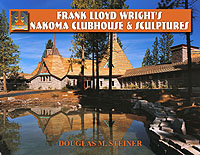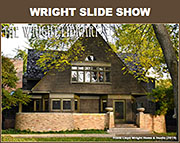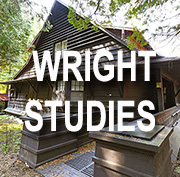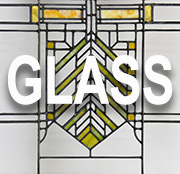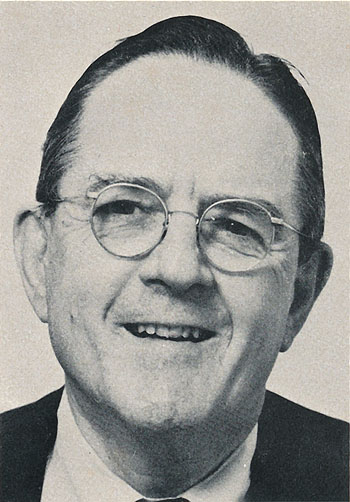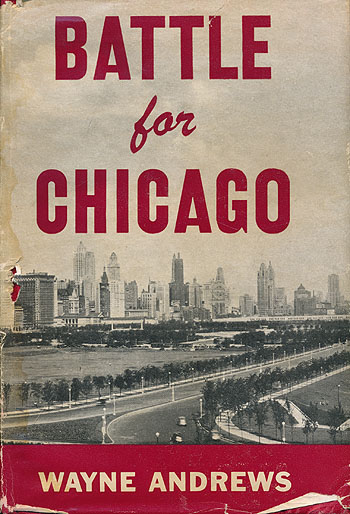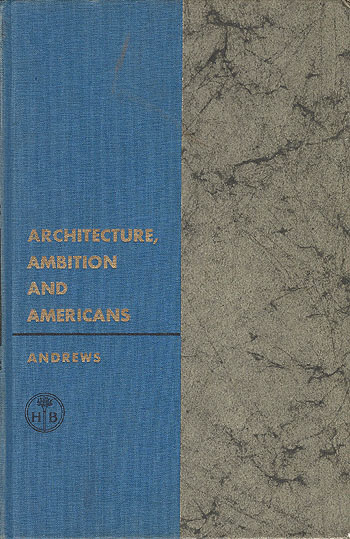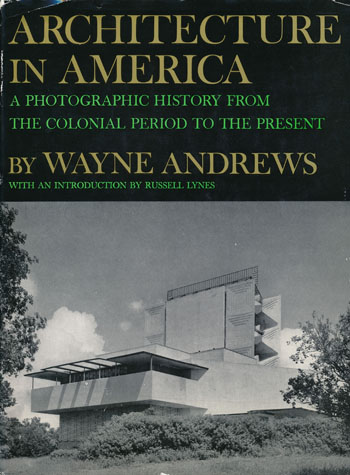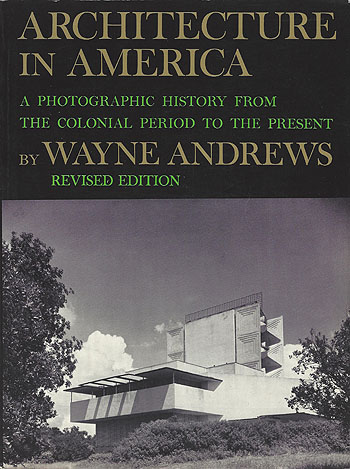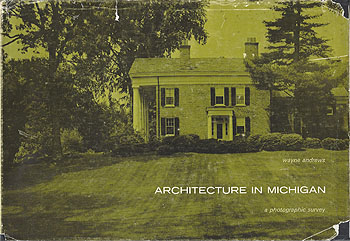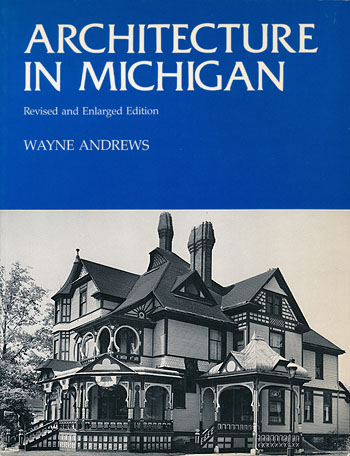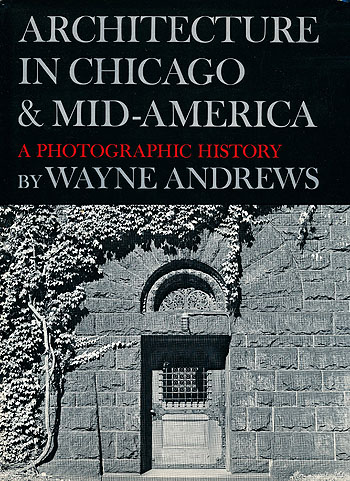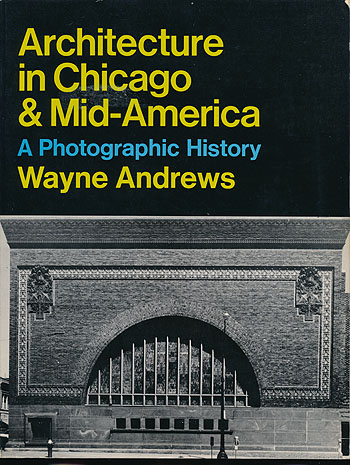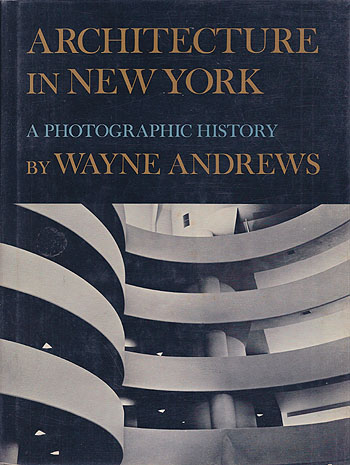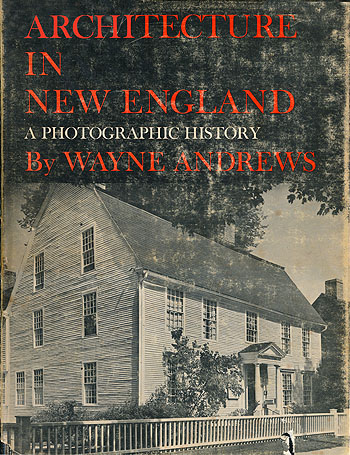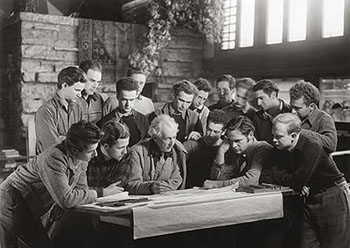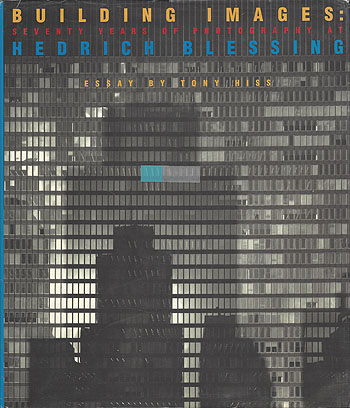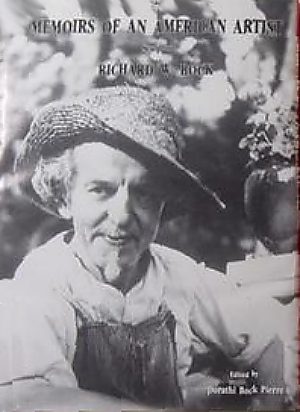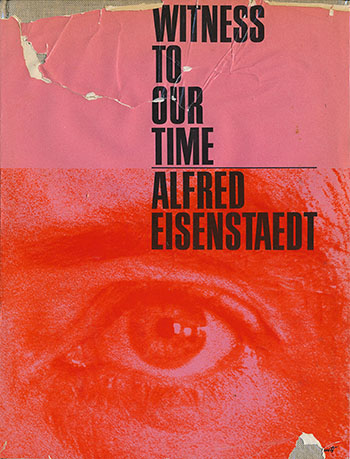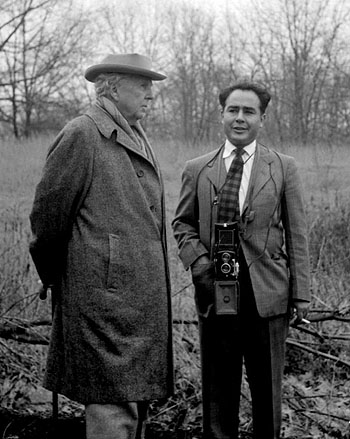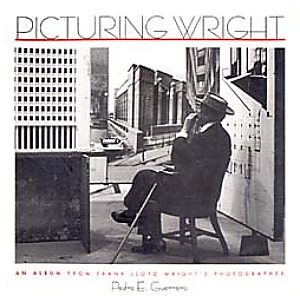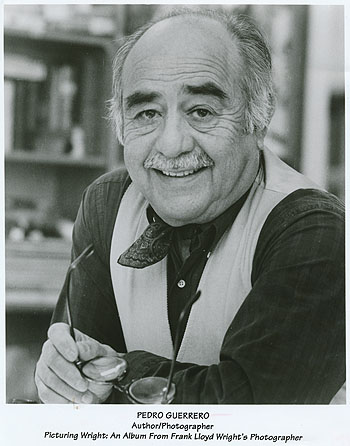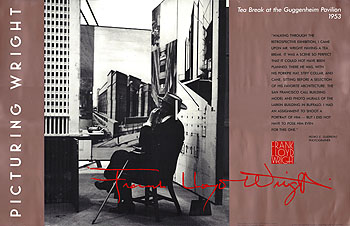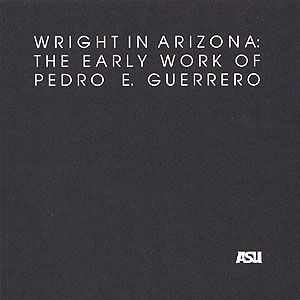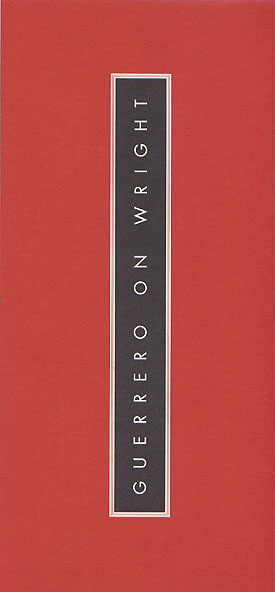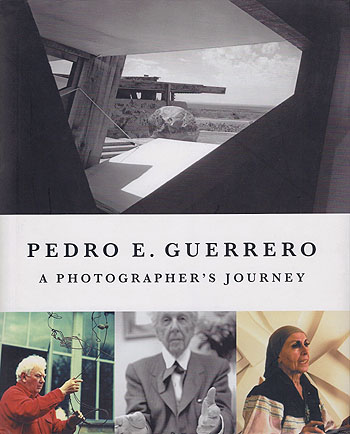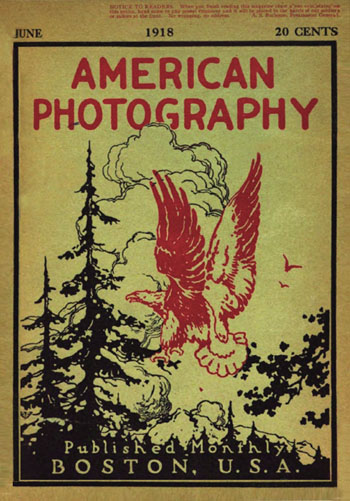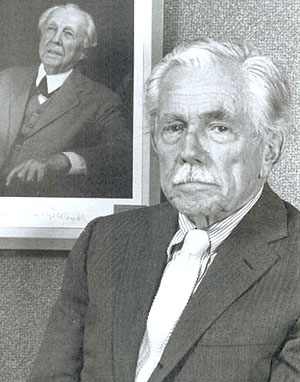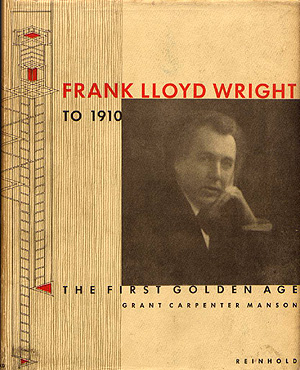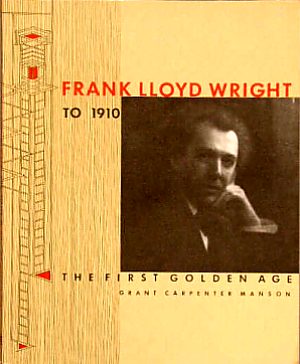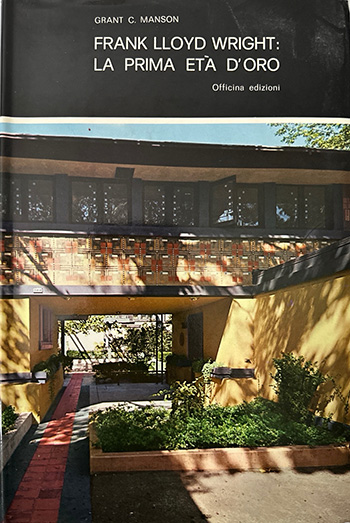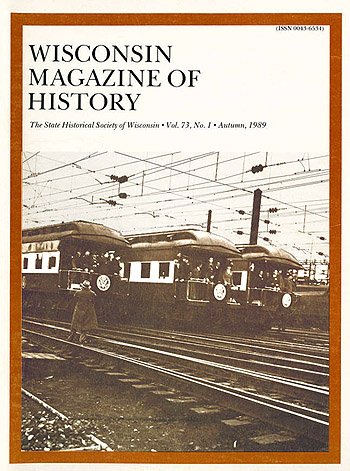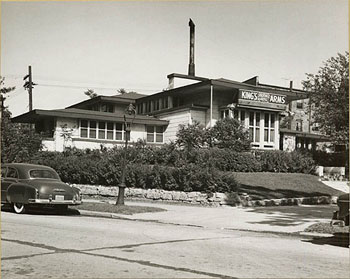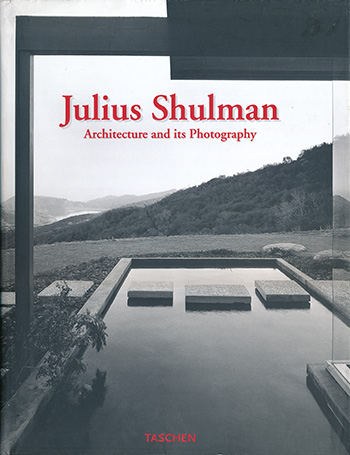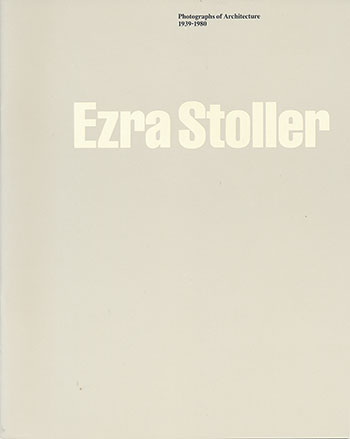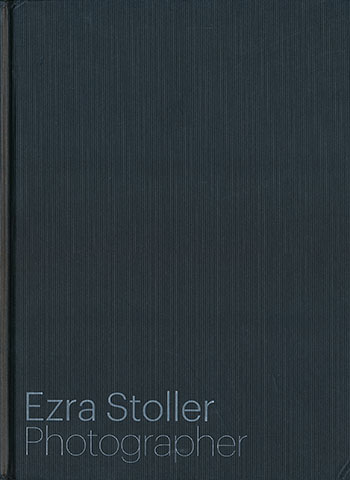
SUPPORT THE
WRIGHT LIBRARY
PROCEEDS FROM EVERY SALE GOES TO SUPPORT THE WRIGHT LIBRARY.
CLICK TO ORDER.
WE PROUDLY SUPPORT THE FRANK LLOYD WRIGHT FOUNDATION

WE PROUDLY SUPPORT THE FRANK LLOYD WRIGHT BUILDING CONSERVANCY
WE PROUDLY SUPPORT FALLINGWATER
AND THE WESTERN PENNSYLVANIA CONSERVANCY

PHOTOGRAPHERS & ARTISTS Wayne Andrews Hedrich Blessing Richard Bock Alfred Eisenstaedt Henry Fuermann & Sons Pedro Guerrero Gilman Lane
Grant Carpenter Manson Richard Nickel (1928-1972) Edgar L. Obma John Gordon Replinger Julius Shulman Ezra StollerWAYNE ANDREWS Wayne Andrews was a Professor, architectural historian, writer, publisher and photographer. He was born on September 5, 1913. He graduated from Harvard College in 1936. He was the Curator of Manuscripts at the New York Historical Society, and an editor at Charles Scribner's Sons. He received a doctorate at Columbia University in1956. His PhD was published as Architecture, Ambition, and Americans, Harper's, 1955. He was the American Art Professor at Wayne State University, Detroit from 1964 to 1983. He published many articles: Harper's Bazaar - July 1948, Pp 76; Perspectives USA No. 4 - Summer 1953, Pp 115-125; Marj - December 1953, Pp 5-10; The Saturday Review - November 14, 1953, Pg 15-16; House Beautiful - February 1965, Pp 90-103. "Wayne Andrews is a writer who thirty-six years ago began wondering what American architecture looked like. Since that time he and his camera have explored forty-five states and the District of Columbia. Architecture in America is the record of his quest. No other photographer has succeeded in documenting so many phases of our architecture, from century the century and from coast to coast..." Architecture in America. He died August 17, 1987, in Paris. His collection of architectural photographs are in the stewardship of Esto Photographic.
Photograph from Architecture in New England dust jacket.Date: 1946
Title: Battle for Chicago (Hard Cover DJ) (Published by Harcourt, Brace and Company, New York)
Author: Andrews, Wayne
Description: Dust jacket: "This is the story of Chicago's money peerage--the Fields, Armours, Pullmans, Insulls, McCormicks and other families who dominated and enlivened a hundred-year history. Battle for Chicago begins with the city's frontier days and continues through the age of gangsters and finally the Chicago of the 1940's and the newspaper war between Colonel McCormick's Tribune and Marshall Field's Sun..." Excerpts. Pages 151-2: "Sullivan's battling pupil Frank Lloyd Wright was the only architect who held out against the new academic age and yet manage to earn a good living. With the self- confidence of a genius, he frightened the moderately well-to-do citizens of Oak Park and other Westside suburbs into putting up homes in the horizontal "Prairie Style." Many of these were surprisingly lovely and even elegant, no matter if the eaves sometimes seem too heavy and the interior is too dark..." Page 257: "Harold McCormick... When Frank Lloyd Wright fell into financial difficulties, he (McCormick) joined a little group of philanthropists who came to the rescue..." Original list price $3.75. (First Edition)
Size: 5.5 x 8.25
Pages: Pp 358
S#: 0685.22.0119Date: 1955
Title: Architecture, Ambition and Americans. A history of American architecture, from the beginning to the present, telling the story of the outstanding buildings, the men who designed them and the people for whom they were built. (Hard Cover) (Published by Harper & Brothers, New York)
Author: Andrews, Wayne
Description: Firsts published in 1947. Andrews published many articles in the 1940-50s. Harper's Bazaar - July 1948; Saturday Review - November 14, 1953; Perspectives USA No. 4 - Summer 1953. Chapter 6, H: The Chicago Story. "Young Frank Lloyd Wright. Wright is credited, even by his enemies, with being the greatest architect of the twentieth century. He is the greatest artist to emerge from the Middle West, the only one who may be said to have conquered Chicago. One reason for his success is that he had always known what he wanted. "You've got to have guts to be an architect!" he has said. "People will come to you and tell you what they want, and you will have to give them what they need..." 17 illustrations and photographs by Wayne Andrews include: Coonley (2); Bradley (1); Lloyd Lewis (1); Taliesin (1); Fallingwater (2); Johnson Wax Co. (2); V. C. Morris (2); Florida Southern College (1); Unitarian Meeting House (2); Taliesin West (3). (Fifth Edition)
Size: 6 x 9.5
Pages: Pp 315
S#: 1092.95.0816Date: 1960
Title: Architecture in America. A Photographic History From The Colonial Period To The Present (Hard Cover DJ) (Published by Atheneum Publishers, New York)
Author: Andrews, Wayne
Description: In 257 photographs, magnificently reproduced, the entire range of American architecture, from the beginning to the present, is brilliantly surveyed... Wayne Andrews is a writer who thirty-six years ago began wondering what American architecture looked like. Since that time he and his camera have explored forty-five states and the District of Columbia. Architecture in America is the record of his quest. No other photographer has succeeded in documenting so many phases of our architecture, from century the century and from coast to coast... Then there is the achievement of Frank Lloyd Wright; to his work Wayne Andrews has assigned one-seventh of this book, plus the carefully it careful consideration of Bernard Maybeck and Green & Green..." Original list price $15.00. (First Edition.)
Size: 8.5 x 11.5
Pages: Pp 179
S#: 1458.70.0219Date: 1977
Title: Architecture in America. A Photographic History From The Colonial Period To The Present (Soft Cover) (Published by New York Atheneum Publishers, New York)
Author: Andrews, Wayne
Description: Originally published in 1960. "In more than 250 photographs, finally reproduced, the entire range of American architecture, from the beginning to the present, is brilliantly surveyed... Wayne Andrews is a writer who thirty-six years ago began wondering what American architecture looked like. Since that time he and his camera have explored forty-five states and the District of Columbia. Architecture in America is the record of his quest. No other photographer has succeeded in documenting so many phases of our architecture, from century the century and from coast to coast... Then there is the achievement of Frank Lloyd Wright; to his work Wayne Andrews has assigned one-seventh of this book, plus the carefully it careful consideration of Bernard Maybeck and Green & Green..." Original list price $8.95. (First Revised Edition.)
Size: 8.5 x 11.1
Pages: Pp 179
S#: 2033.25.1217Date: 1967
Title: Architecture in Michigan. A photographic Survey (Hard Cover DJ) (Published by Wayne State University, Detroit)
Author: Andrews, Wayne
Description: Wayne Andrews was born on September 5, 1913. He graduated from Harvard College in 1936. He was the Curator of Manuscripts at the New York Historical Society, and an editor at Charles Scribner's Sons. He received a doctorate at Columbia University in1956. His PhD was published as Architecture, Ambition, and Americans, Harper's, 1955. He was the American Art Professor at Wayne State University, Detroit from 1964 to 1983. He published many articles: Harper's Bazaar - July 1948, Pp 76; Perspectives USA No. 4 - Summer 1953, Pp 115-125; Marj - December 1953, Pp 5-10; The Saturday Review - November 14, 1953, Pg 15-16; House Beautiful - February 1965, Pp 90-103; He died August 17, 1987, in Paris. His collection of architectural photographs are in the stewardship of Esto Photographic. Includes nine plates of Wrights work; 34) May; 36) Maxwell; 37) Alpaugh; 38/39) Palmer; 40/41) Schultrz; 42) Harper; 43) Meyer. Original list price $6.95. (First Edition)
Size: 9 x 6.25
Pages: Pp 112 Unpaginated
S#: 1720.36.0417Date: 1987
Title: Architecture in Michigan. Revised and Enlarged Edition (Soft Cover) (Published by Wayne State University Press, Detroit)
Author: Andrews, Wayne
Description: First published in 1967. This revised and enlarged edition was first published in 1982. Publisher's description: "Architecture in Michigan, a pictorial survey of Michigan architecture from 1831 to the present, explores the architecture of Detroit and many other cities, towns, and villages. Here is Romantic Michigan, before the Civil War, with dozens of examples of Greek, Gothic, and Italian villas from Grosse lIe to Grass Lake, Tecumseh, and Ypsilanti, as well as Gothic churches. Then there is Glorious Michigan of the exuberant 1870s and 1880s, when architects evoked the Paris of the Second Empire and the doctrine of John Ruskin cast its peculiar spell. And Discreet Michigan, when the wealthy, following the lead of the Vanderbilts in New York, revived the Renaissance as the proper style for Michigan dynasties. And finally Modern Michigan, with Albert Kahn, the greatest factory architect in history, Eliel and Eero Saarinen, the talented Finns, the time when the buildings of modern Michigan began to acquire an international reputation. The expanded text of this unique book dips deep into Michigan history, covering every generation since Michigan entered the Union in 1837." Includes an extensive sections on Frank Lloyd Wright: "Frank Lloyd Wright's Michigan" pages 137-151, and includes 18 photographs and illustrations of Wright's work. (Second Edition)
Size: 8.5 x 11
Pages: Pp 181
ST#: 1987.107.0119Date: 1968
Title: Architecture in Chicago & Mid-America. A Photographic History (Hard Cover DJ) (Published by Atheneum Publishers, New York)
Author: Andrews, Wayne
Description: Dust jacket: "Here in 260 stunning photographs (all but 31 of which are the work of Mr. Andrews) is a magnificently comprehensive survey of the important buildings of the middle west from the days of the Greek and Gothic Revivals to the present. All of the world-famous Chicago skyscrapers are included, and for the first time the masterpieces of Louis Sullivan, Frank Lloyd Wright, and Eliel and Eero Saarinens in this area are gathered together in one book. But Mr. Andrews has not slighted the great European architects" contribution to the middle west... While and unqualified admirer of Frank Lloyd Wright, Mr. Andrews has done justice to the work of the eclectics who never claimed to be part of the modern movement." Includes two extensive sections on Frank Lloyd Wright: "The Early Work of Frank Lloyd Wright," pages 65-84, and "The Return of Frank Lloyd Wright," pages 120-140. Includes 64 photographs of Wright's work. Original list price $20.00. (First Edition)
Size: 8.5 x 11.1
Pages: Pp 186
S#: 1757.22.0219Date: 1973
Title: Architecture in Chicago & Mid-America. A Photographic History (Soft Cover) (Published by Harper & Row, New York, Evanston, San Francisco, London)
Author: Andrews, Wayne
Description: Originally published in hardcover by Atheneum Publishers. Back cover: "In 260 photographs here are the important buildings of the middle west from the days of the Greek and Gothic Revivals to the present. Mansions in the Chicago area in Cleveland and Grosse Point are shown. The famous Chicago skyscrapers are included and the masterpieces of Louis Sullivan, Frank Lloyd Wright, and the Saarinens. And there is the work of lesser known but significant architects such as Howard Van Doren Shaw and Daniel Hudson Burnham. The architecture of Chicago and the Middle West has had a decisive influence on American and world architecture. It is survived here in an outstanding collection of photographs." Includes two extensive sections on Frank Lloyd Wright: "The Early Work of Frank Lloyd Wright," pages 65-84, and "The Return of Frank Lloyd Wright," pages 120-140. Includes 64 photographs of Wright's work. Original list price $4.95. (First Edition)
Size: 8.5 x 11.1
Pages: Pp 186
S#: 1940.21.0119Date: 1969 Title: Architecture in New York, A Photographic History (Hard Cover DJ) (Published by Atheneum, New York)
Author: Andrews, Wayne
Description: In 255 photographs, magnificently reproduced, the incredible range of the architecture of New York State, from Manhattan Island to Chautauqua County, is surveyed by a connoisseur (dust jacket). Section on Frank Lloyd Wright, pages 147-155. Includes photographs of Darwin D. Martin Residence, Larkin Building (2), Boynton and Davidson Residences, Heath Residences (2), Friedman Residences (2), Guggenheim Museum (3) plus the cover. Original list price $17.50 until Dec. 25, 1969, then $20.00. (First Edition) (Sweeney 1758)
Size: 8.75 x 11.5
Pages: Pp 188
S#: 1758.00.0613
Date: 1973
Title: Architecture in New England, A Photographic History (Hard Cover DJ) (Published by The Stephen Greene Press, Brattleboro, Vermont.)
Author: Andrews, Wayne
Description: Dust Jacket: "And here - in 230 striking photographs, 220 of his own taking, and an evocative text -- Mr. Andrews proves his case. For it was 18th century New England that gave us Peter Harrison, the first American architect. From here, too, spring Asher Benjamin, who published the first American handbook for carpenters and builders... But most important, as Wayne Andrew so well documents in this impressive one-volume panorama of New England architecture, ninety years ago New England -- thanks to Harry Hobson Richardson and McKim, Mead and white - became the lively cradle of modern architecture, setting standards for a man like Paul Rudolph and Eero Saarinen to live up to in our own time." Chapter VIII: "The New Look, or Modern Times. Although Frank Lloyd Wright owed so much to Richardson and to the early work of McKim, Mead & White, he was never to conquer New England. The very best example of his work there is a small house of Professor Theodore Baird of the Amherst faculty..." Although there are other references to Wright, there is only one photograph of his work, the Baird House. Original cost $16.95. (First Edition)
Size: 9.25 x x 12.25
Pages: Pp 202
S#: 1940.28.0520Date: 1979
Title: Pride of The South, A Social History of Southern Architecture (Hard Cover DJ) (Published by Atheneum, New York)
Author: Andrews, Wayne
Description: Wayne Andrews follows the recent revised reissue of his unique Architecture in America with an entirely new and detailed study of the architecture of the South. Not only is Wayne Andrews our best architectural photographer, he is also a social historian second to none, and he has provided for this lavish volume a brilliant account of the architects, their patrons, and their buildings, from Thomas Jefferson to John Calvin Portman. He has dug deep for his material, and his sparkling text is constantly surprising and revelatory. Here are 170 photographs, all reproduce in generous size, covering the entire range of Southern architecture. Touches on Frank Lloyd Wright's work in the South, and includes four photographs of Wright's work, Stevens (Auldbrass), Florida Southern College and Dallas Theater (2). Original list price $20.00. (First Edition)
Size: 8.5 x 11.5
Pages: Pp 181
ST#: 1979.47.0520HEDRICH BLESSING Ken Hedrich and Henry Blessing founded Hedrich Blessing in 1929. When Blessing left for Denver within the year, brother Ed Hedrich came in to manage the office. In 1931 brother Bill came on board as the first of hundreds of photographic assistants who would learn their craft at HB.
In 1937 Architectural Forum magazine commissioned Hedrich Blessing to photograph recent works of Frank Lloyd Wright. Ken made several trips to Taliesin and formed another lifelong collaboration with Wright. Bill's images of the Kaufman residence in Pennsylvania so captured the essence of Wright's masterpiece that it reputedly inspired the name "Falling Water".
Although most widely known for its architectural photography, from the outset Hedrich Blessing has been a commercial studio working with designers in related fields such as industrial, annual report, product and editorial photography.
Today five photographers build upon Hedrich Blessing traditions. Each began as a photographic assistant and was mentored by one or more of their predecessors. Remarkably, there have been only eighteen photographers on camera in the firm's 80 year history. Collaborative relationships with architects and designers remain a hallmark at Hedrich Blessing.Date: 2000
Title: Building Images: Seventy Years of Photography At Hedrich Blessing (Hard Cover DJ) (Published by Chronicle Books, San Francisco, CA)
Author: Hiss, Tony
Description: Produced in Collaboration with the Chicago Historical Society. Includes photographs of:
1) Fallingwater, photographed by Bill Hedrich, 1937;
2) Taliesin West, photographed by Bill Hedrich, 1942;
3) Taliesin Spring Green, photographed by Bill Hedrich, 1937;
4) Frank Lloyd Wright Home and Studio, photographed by Jon Miller, 1995.
Includes a total of seven photographs of Wright and his work. This volume assists in dating their photography of Frank Lloyd Wright's work. Original list price $75.00) (First Edition)
Size: 10.25 x 12
Pages: Pp 192
ST#: 2000.85.0118Apprentices at Taliesin, Spring Green, 1937 (two photographs) Taliesin, Spring Green, 1937 Fallingwater 1937 Fallingwater 1937, Built in USA: Since 1932-1944 Life Magazine - January 17, 1938 Time - January 17, 1938 Fallingwater, Fortune Magazine, January 1942 Loren B. Pope Residence, 1954 Oscar Steffens Residence, 1963 (three photographs) Architectural Forum - May 1964 Robie House, House Beautiful, February 1965 William H. Winslow House, 1967 Home and Studio Play Room, Oak Park, 1986 Home and Studio, Oak Park, 1986 Home and Studio, Oak Park, Architectural Business, Third Quarter, 1988 Home and Studio, Oak Park, Architectural Lighting - August 1988 Home and Studio Library and Reception Room, Oak Park, 1990 (two postcards) Home and Studio, Oak Park, 2000 Taliesin, Architectural Digest, May 2004 RICHARD W. BOCK Date: 1989 Title: Memories of an American Artist: Richard W. Bock (Hard Cover - DJ)
Author: Pierre, Dorathi Bock
Description: (Second Edition)
Size:
Pages: Pp 155
ST#: 1989.01.0900
ALFRED EISENSTAEDT Date: 1966
Title: Witness To Our Time (Hard Cover DJ) (Published by The Viking Press, Inc., New York, New York)
Author: Eisenstaedt, Alfred
Description: Dust jacket: "Both as a collection of great photographs and for its coverage of famous people and historic events by a single photographer, witness to our time is unique in the history of book publishing. From the late 1920s to the year 1966, Alfred Eisenstaedt - a staff photographer of life from its beginning in 1936 - has probably traveled more miles and photograph more people in high - and low - places than any other living photographer. That fabulous record of a life behind the lens is set down in this book..."
In 1956, Eisenstaedt had the opportunity to photograph Frank Lloyd Wright at Taliesin. Alfred Eisenstaedt writes in Time Magazine (June 11, 1956, page 17) and Modern Photography that "I shall always remember my assignment to photograph Frank Lloyd Wright. It was done under such rushed, almost impossible conditions." He had just photographed Dr. J. Robert Oppenheimer and Dr. Jacques Maritain in Princeton, N.J. early in the day. He rushed back to his office. Caught a plane to Madison arriving a midnight. Had a few hours of sleep, and rushed to Taliesin to photograph Wright the next day. He was only at Taliesin for two hours. All were shot within 45 minutes and with three rolls of film. This is just one of the many images photographed that day. An in depth article describing his photo shoot at Taliesin is published in Modern Photography, September 1957, pages 52-57, 110-112.
One of the photographs taken that day is published in this volume, page 208. Original list price $16.50. (First Edition)
Size: 10 x 13
Pages: Pp 343
S#: 1679.30.0122
PEDRO GUERRERO Date: 1949 Title: Frank Lloyd Wright and Pedro E. Guerrero
Description: Frank Lloyd Wright and Pedro E. Guerrero (September 5, 1917 - September 13, 2012), Pleasantville, New York, 1949. Guerrero was with Frank Lloyd Wright at the Usonian Cooperative in Pleasantville, NY, photographing the progress of three homes. He began photographing Wright's work in 1939, and continues until Wright's death. Photographed by Keneji Domoto, an architect and former apprentice. Published in "Picturing Wright", Guerrero, 1994, p.12 and "Pedro E. Guerrero", Guerrero, 2007, p.6.
Size: 8 x 10 B&W photograph
S#: 0798.14.0714
Date: 1994 Publication: Picturing Wright (Hard Cover - DJ) (Published by Pomegranate Artbooks)
Author: Guerrero, Pedro, E.
Description: Original HC List Price $29.95. (First Edition)
Pages: 176
ST#: 1994.08.1200
Date: 1994
Title: Pedro E. Guerrero, 1994 (September 5, 1917 - September 13, 2012).
Description: Pedro E. Guerrero began photographing Frank Lloyd Wright's work in 1939, and went on to become Wright's primary photographer, and continued until Wright's death. Text on face: "Pedro Guerrero, Author/Photographer, Picturing Wright: An Album From Frank Lloyd Wright's Photographer." Published on the dust jacket of Picturing Wright. Dust jacket: "Pedro E Guerrero began his photograph career in 1939 when Frank Lloyd Wright retained him to document his buildings and the Taliesin Fellowship. Guerrero, then twenty-two, began by photographing Taliesin West, Wright's new home and studio outside Scottsdale, Arizona. He soon became an apprentice and moved with the Fellowship to it's summer quarters, the first Taliesin in Wisconsin..."
Size: Original 8 x 10 B&W photograph.
ST#: 1994.131.0721Date: 1995
Title: Picturing Wright. Tea Break at the Guggenheim Pavilion, 1953 (Published by the Frank Lloyd Wright Foundation, Taliesin West, Scottsdale, AZ)
Author: Guerrero, Pedro
Description: "Walking through the retrospective exhibition, I came upon Mr. Wright having a tea break. It was a scene so perfect that it could not have been planned. There he was, with his Porkpie hat, stiff collar, and cane, sitting before a selection of his favorite architecture: The San Francisco Call Building model and photo murals of the Larkin Building in Buffalo. I had an assignment to shoot a Portrait of him - But I did not have to pose him even for this one."
Size: 28 x 18
ST#: 1995.82.0716Date: 1995 Publication: Wright in Arizona: The Early Work of Pedro E. Guerrero. A selection of Photographs from the Pedro E. Guerrero collection. (Soft Cover) (Published by Arizona State University, Herberger Center for Design Excellence, Phoenix)
Author: Boyle, Bernard Michael
Description: Catalog for an exhibition at the Gallery of Design, College of Architecture and Environmental Design, Arizona State University, 8 January - 2 February 1996. 1200 copies of this catalog were printed. Original SC List Price $19.95. (First Edition)
Pages: 47
ST#: 1995.31.0404
Date: 2002 Description: Guerrero on Wright (Published by the Monona Terrace Community and Convention Center) Brochure for the permanent exhibit.
Pages: 12
ST#: 2002.57.0205
Date: 2007 Publication: Pedro E. Guerrero, A Photographer's Journey (Hard Cover - DJ) (Published by Princeton Architectural Press, New York)
Author: Guerrero, Pedro E.
Description: Guerrero steps out from behind the camera, and for the very first time, tells his story along with the stories of the contradictory and complex lives of the extraordinary people he has known. Pedro Guerrero spent his entire career, nearly 60 years, photographing the houses of some of the most illustrious of America's architects and artists of the twentieth century. Emerging from a modest background, his first professional job at the age of 22 in 1939 was photographing Taliesin West, the Arizona home of Frank Lloyd Wright. For the next 20 years, Guerrero was the chief visual interpreter of of Wright's homes, producing the only visual record of Wright's work as it appeared on completion. With over 190 of the author's own photographs. (Publisher's description.) Original hard cover list price $55.00.
Size: 8.25 x 10.25. (First Edition)
Pages: 224
ST#: 2007.59.1010
GILMAN LANE Possibly a self portrait by Gilman Lane, American Photography, June, 1918, page 364. Courtesy of American Photography.
Gilman Lane photographed building in the Chicago area including many of Wright's work. Upon his death in 1961, Lane donated his collection of over 700 photographs to the Oak Park Public Library. According to William Jerousek, Librarian at the OPPL, Lane was an industrial arts teacher at the Oak Park-River Forest High School from 1923 to 1957.
But Lane's interest in photograph proceeded his teaching career in Oak Park. In the June, 1918 issue of American Photography, he wrote lengthy technical article entitled "A Daylight Enlarger to be used in any Lighted Room". It reads like an article written by one professional photographer to another. This leads one to wonder if he may have tried his hand as a professional photographer, but opted for the steady paycheck as a teacher, never giving up his first love of photography.
Whether a one-time professional, part time freelance, or "amateur", the results were anything but amateur. He left an early record of over 150 Wright buildings. In the seminal Biography of Wright's Work by Henry-Russell Hitchcock, "The Nature of Materials", Hitchcock credits Henry Fuermann and Sons, and "another important group of photographs taken by Gilman Lane... who has been photographing Wright's work for many years, and who has taken many new photographs particularly for this book."
"A Daylight Enlarger to be used in any Lighted Room" American Photography, June 1918, Lane, Pp 364-365. Midway Gardens, Chicago IL. Circa 1925. (Images #6-7). Wright's Oak Park Home. Circa1925. Francis Apartments. Circa 1925-35. Frank L. Smith Bank, Dwight, IL. Circa 1935-1941. F.B. Henderson Residence, Elmhurst, IL. Circa 1935-1945. Lake Geneva Hotel, Lake Geneva, WI. Circa 1935-1945. Scoville Park Fountain, Oak Park, IL. Circa 1935-45. River Forest Tennis Club, River Forest, IL. Circa 1940. (Image #5-7). Chauncey L. William Residence, built in 1895. Circa 1940. Robert W. Roloson Rowhouses, Chicago, IL. Circa 1940-41. "The Nature of Materials", Hitchcock, published in 1942.
AMERICAN PHOTOGRAPHY Date: 1918 Title: American Photography - June 1918 (Published monthly by American Photography Publishing Co., Boston, Mass.)
Author: Lane, Gilman
Description: "A Daylight Enlarger to be used in any Lighted Room. Not every amateur has yet solved the problem of successful enlarging. Perhaps he has a small darkroom far removed from a good outside light, and cannot expend the amount of money necessary to buy an artificial illuminating apparatus - including condenser..." Gilman Lane photographed many of Frank Lloyd Wright's building in the Midwest. Includes four illustrations and one photograph which may be a self portrait. 6.5 x 9.5. (Digital version.)
Size:
Pages: Pp 364-365
S#: 0139.05.1011
GRANT CARPENTER MANSON (1904-1997) Architectural historian Grant Carpenter Manson first met Mr. Wright in 1938. He had decided to make Wright the subject of his doctoral dissertation while at Harvard. He felt it essential to meet Wright and so in September he headed toward Spring Green from Massachusetts. Upon reaching Chicago, he placed a call to Spring Green and asked the operator "to put him through to Mr. Wright". He heard his voice for the first time. Manson took photographs between 1937 and 1941 while researching for his doctoral dissertation titled "Frank Lloyd Wright's Work Before 1910". While a professor at the University of Pennsylvania, he elaborated his thesis and published his book "Frank Lloyd Wright to 1910: The First Golden Age" in 1958. Upon publication, Manson hand delivered a copy of the book to Wright in New York.
Mr. Manson gave the photographs and other materials to the library in July 1973. Grant Carpenter Manson (1904-1997).
Grant Carpenter Manson (1904-1997). Photographed in 1989 by Douglas Wacker. (Courtesy of Wisconsin Magazine of History)
Date: 1958 Publication: Frank Lloyd Wright to 1910, The First Golden Age (Hard Cover - DJ) (Published by Reinhold Publishing Corp., New York)
Author: Manson, Grant Carpenter
Description: Dust Jacket: “The story - personal and professional - of one of the greatest architects whoever lived is here told by the man whom Frank Lloyd Wright has introduced as "Grant Manson, who knows more about me than I do."
“The saga of Frank Lloyd Wright is of such epic proportions-so great has been his Manson, Grant Carpenter accomplishment in both quantity and quality, so important has been his influence upon the architecture of our world-that it is being told in three volumes. This first volume takes the reader up to 1910, a turning point in Wright's life as an architect and as an individual.
“Wright's accomplishment by 1910 was considerable; he had already enjoyed what to many men would have been a whole career. Most outstanding perhaps was his conception and evolution of the Prairie House...”
Robert Sweeney wrote: “An analysis and discussion of the architect's work up to his departure for Europe in 1909. This study was expanded from Manson's 1940 unpublished Ph.D. dissertation, Harvard Uni-versity. Manson met Wright and was given access to the archives of photographs, drawings, and plans at Taliesin...” Frank Lloyd Wright, An Annotated Bibliography, 1978, p.147.
Back cover indicated two additional volumes from Manson, but were never published: “The next two volumes of Mr. Manson's definitive biography of Frank Lloyd: Wright will continue the narrative of the life and work of the world's foremost architect through the years when clients were few and up to the present, when Frank Lloyd Wright is the best known. name in architecture. In these volumes too, Mr. Wright's architecture will be shown by means of hundreds of illustrations, many of there seldom-seen vintage photographs and drawings, The Lean, Lost Years will appear in 1960 and The Second Golden Age later.”
An edition was published in Italian in 1969 by Officina Edizioni Roma. Frank Lloyd Wright : La Prima Eta D’Oro. Two copies, one with and one without dust jacket. 8.5 x 11. (First Edition) (Sweeney 1206)Pages: 228
S#: 1206.00.0601, 1206.01.0503Date: 1958 Publication: Frank Lloyd Wright To 1910, The First Golden Age (Soft Cover) (Published by Reinhold Publishing Corp., New York)
Author: Manson, Grant Carpenter
Description: Back Cover: The story - personal and professional - of one of the greatest architects who ever lived is here told by the man whom Frank Lloyd Wright once introduced as "Grant Manson, who knows more about me tan I do." This volume takes the reader up to 1910, a turning point in Wright's life as an architect and as an individual.
Wright's accomplishment by 1910 was considerable; he had already enjoyed what to many people would have been a full career. Most outstanding perhaps was his conception and evolution of the Prairie House, an expression of organic architecture that was the result of many factors: Wright's resourceful Welsh forebears, his Midwest back-ground, his experience with Lyman Silsbee and Louis Sullivan, his interest in Japanese art, and especially his native genius. During the same period Wright also set many precedents for nonresidential archi-tecture, including Unity Church and the Larkin Building. These buildings-residential and nonresidential—plus the unexecuted projects shown add up to a new understanding of Wright's mentality.
Grant Carpenter Manson first met Mr. Wright in 1939 while preparing his Harvard doctoral thesis, but his influence reaches back to Mr. Manson's childhood. He fell in love with the Husser House at the age of six and has been faithful ever since. Also published in Italian in 1969 by Officina Edizioni Roma. Frank Lloyd Wright : La Prima Eta D’Oro.
Original SC List Price $19.95. 8.4 x 10.75 (Fifth Edition) (Sweeney 1206)Pages: 228
S#: 1206.05.1200Date: 1969
Title: Frank Lloyd Wright: La Prima Età D'Oro (The First Golden Age) (Hard Cover, Dust Jacket affixed to stiff boards) (Published in Italian by Officina Edizioni Roma. Printed by Visigalli Pasetti, Rome. First published by Reinhold Publishing Corp., New York in 1958.)
Author: Manson, Grant Carpenter: Introduction by Hitchcock, Henry-Russell
Description: First published in 1958. Dust jacket: The personal and professional story of one of the greatest architects that ever existed is narrated here by the man that Wright himself had the opportunity to present as: "Grant Manson, who knows more about me than myself”.
The saga of Frank Lloyd Wright is of such narrative proportions for the importance of achievements, both quantitative and qualitative, and for the influence he exerts on the architecture of our cultural sphere that it requires a subdivision into "periods".
This volume takes the reader to 1910, which marks a fundamental turning point in the life of Wright architect.
The work done by Wright until 1910 is considerable: he had already achieved what for other men represents an entire career, but the most significant fact was having created and perfected the "Praire House"...
Grant C. Manson, art historian and architect, took most of the 280 photographs, drawings and plans that illustrate this text directly from the archives of Taliesin North.
Acquired from a bookseller in Germany. (First Italian Edition) (Sweeney 1206)
Size: 6.1 x 9.4
Pages: Pp 261
S#: 1770.00.1225Date: 1989 Title: Wisconsin Magazine of History - Autumn 1989 (Published quarterly by the State History of Wisconsin, Madison)
Author: Manson, Grant Carpenter
Description: "The Wonderful World of Taliesin: My Twenty Years on Its Fringes." Manson's involvement with Wright and information about writing his book. Includes five photos. Original price $6.25. (Complete digital article)
Size: 7.5 x 10
Pages: Pp 33-41
ST#: 1989.65.0908
JOHN GORDON REPLINGER John Gordon Replinger was born in 1921. became a professor in 1951 at the University of Illinois, School of Architecture. He received a BS in architecture and an MS from the University. Prof. Replinger attained tenure in 1961 and retired in 1985. He designed over forty houses, mainly in Champaign-Urbana, Michigan, California, and Florida. Additionally, he designed 80 residential additions. He passed away March 27, 2006.
In 1951, John Replinger, published "An Introduction to the Architecture of the Prairie School: Maher, Wright, Griffin", published by the University of Illinois, Urbana, Ill. For this volume he photographed the Oscar Steffens residence.
Oscar Steffens Residence, 1950
JULIUS SHULMAN Date: 1998
Title: Julius Shulman, Architecture and its Photography (Hard Cover DJ) (Published by Taschen, Koln, Lisboa, London, New York, Paris, Tokyo)
Author: Shulman, Julius
Description: Dust jacket: American photographer Julius Shulman's images of Californian architecture have burned themselves into the retina of the 20th century. A book on modern architecture without Shulman is inconceivable. Some of his architectural photographs, like the iconic views of Frank Lloyd Wright's or Pierre Koenig's remarkable structures, have been published countless times. The brilliance of buildings like those by Charles Eames, as well as those of his close friend Richard Neutra, was first brought to light by Shulman's photography. The clarity of his work demanded that architectural photography had to be considered as an independent art form. Each Shulman image unites perception and understanding of the buildings and their place in the landscape. The precise compositions reveal not just the architecrural ideas behind a building's surface, but also the visions and hopes of an entire age...
Includes 10 photographs related to Frank Lloyd Wright, Sturges, Taliesin West (3), V. C. Morris (2), Freeman (2), Ennis, and Guggenheim. (First Edition)
Size: 9.75 x 12.75
Pages: Pp 299
ST#: 1998.117.0514EZRA STOLLER Date: 1980
Title: Ezra Stoller, Photography of Architecture 1939-1980 (Soft Cover) (Published by Max Protetch Gallery, New York, New York)
Author: Drexler, Arthur
Description: Produced in conjunction with an exhibition held at Max Protetch Gallery, New York, December 4, 1980 - January 12, 1981. "In the years after World War II, when American optimism about modern architecture was at its zenith, architectural photography assumed a new importance. Photographs were no longer simply records of built facts, or even poetic interpretations. They became missionary tracks published into the world, teaching the people the demanding but redemptive art of looking at modern buildings... Ezra Stoller's photographs are now part of the history of modern architecture in the United States. If he made some buildings look a little better than they were, the improvement provided an image for aspiring architects..." Of the 16 photographs published in the catalog, four are of Frank Lloyd Wright's work: Johnson Wax Research Tower 1950, Fallingwater 1963 (2), and the Guggenheim Museum 1959. (First Edition)
Size: 8 x 10
Pages: Pp 20
ST#: 1980.64.0422Date: 2012
Title: Ezra Stoller, Photographer (Hard Cover) (Puvlished by Yale University Press, New Haven, Connecticut, London)
Author: Rappaport, Nina; Stoller, Erica; Intro: Grundberg
Description: Publisher's description: "A long-awaited survey of the full range of Stoller's stunning photography Ezra Stoller's iconic photographs of 20th-century architectural masterpieces, such as Frank Lloyd Wright's Fallingwater and Mies van der Rohe's Seagram Building, are often cited in aiding the rise of modernism in America. Stoller (1915-2004) elevated architectural photography to an art form, capturing the mood of numerous buildings in their best light. Living and working in New York from the early 1940s to the mid-1970s, Stoller photographed buildings by such architects as Alvar Aalto, Eero Saarinen, Marcel Breuer, Paul Rudolph, and Louis I. Kahn. His striking images earned him the admiration of critics and contemporaries, but few people are aware of the stunning breadth of his oeuvre, which also included domestic and industrial spaces and important editorial depictions of American labor in the 1950s and 1960s..." Includes many photographs of Frank Lloyd Wright's work.
Size: 9.25 x 12.25
Pages: Pp 288
ST#: 2012.36.0822BACK TO TOP
HOME ARTIFACTS AUDIO BOOKS PERIODICALS PHOTOS POSTCARDS POSTERS STAMPS STUDIES ASSISTING ABOUT SLIDE SHOW To donate or pass on information, comments or questions:
steinerag@msn.com
©Copyright Douglas M. Steiner, 2001, 2026
